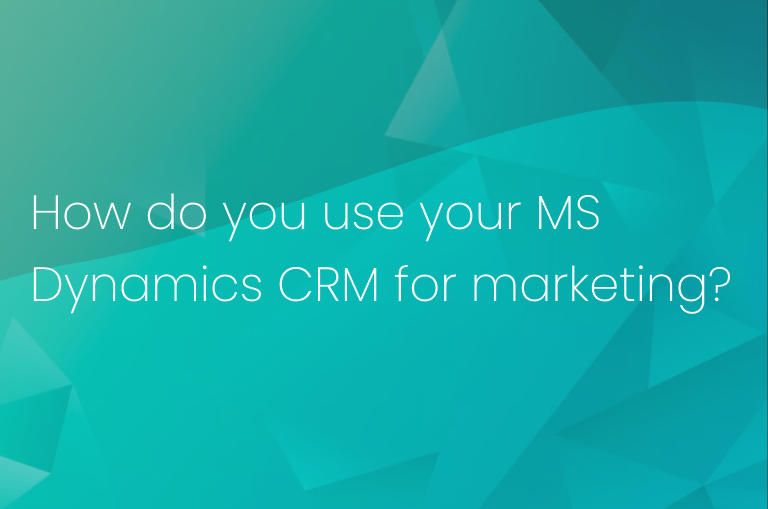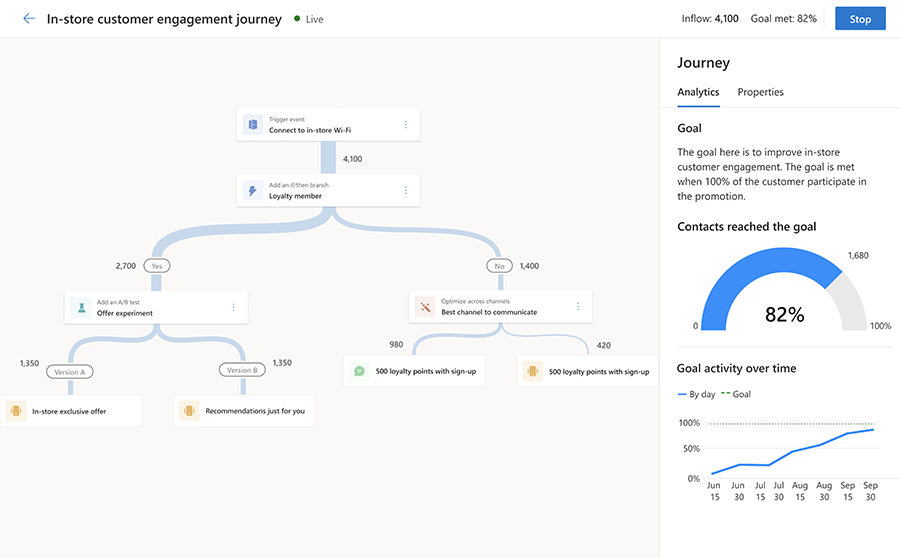How do you use your MS Dynamics CRM for marketing?

Microsoft Dynamics 365 CRM is more than just a contact database. It is a full-featured marketing engine designed to help teams build real customer relationships, run smarter campaigns, and work closely with sales. By using its built-in tools and seamless integrations, marketers can personalise outreach, automate their workflows, and gain the insights they need, all from one platform.
Whether you're just getting started with Dynamics 365 CRM or aiming to use it more strategically, this guide walks you through the key marketing features and how they can support your goals.
Building Targeted Marketing Lists
Effective marketing starts with smart segmentation. Dynamics 365 CRM gives you the ability to build highly specific lists using real-time customer data. You can segment contacts based on demographics, purchase history, engagement levels, or any custom criteria your team needs.
For example, a fashion retailer might create a list of customers who have purchased outerwear in the past month and automatically send them a relevant promotion. Because the system supports both dynamic and static lists, you can keep segments constantly updated or freeze them at a moment in time for one-off campaigns.
This kind of targeting makes your campaigns more relevant and significantly increases your chances of engagement.
Designing and Executing Campaigns
You can plan and execute multichannel marketing campaigns directly within Dynamics 365 CRM. This includes emails, social posts, events, and phone follow-ups. The platform tracks everything, so you know who engaged, what actions they took, and which channels performed best.

If you're launching a new product, for example, you can send a teaser email, track who clicked through, and then automatically queue up a phone call or an invitation to a launch webinar. All of this can be coordinated in one place, and the campaign’s impact can be measured in real time.
Campaign Activity tools help with scheduling, budgeting, assigning tasks, and ensuring that both marketing and sales are on the same page from the very beginning.
Automating Customer Journeys
Rather than relying on manual follow-ups, you can use Dynamics 365 CRM to set up automated customer journeys that respond to real-world behaviour. If someone signs up for a newsletter or downloads a white paper, you can trigger a welcome email, followed by a series of educational touchpoints spaced out over time.
For new leads, you might design a journey that introduces your brand, provides helpful content, and gradually builds toward a product demo. This keeps your prospects warm and engaged without overwhelming your team with admin work.
Customer journeys can be fully customised, giving you the freedom to nurture relationships at scale without losing the personal touch.
Integrating with Dynamics 365 Sales
One of the platform’s strongest benefits is how closely marketing integrates with Dynamics 365 Sales. The two share a central database, so sales reps can see what campaigns their leads have interacted with, which emails they opened, and what content caught their interest.
When a lead moves from marketing to sales, the transition is seamless. There is no need for handover emails or spreadsheet exports. Instead, the team shares one real-time view of each contact’s journey. Sales can follow up with context, and marketing can see which campaigns are delivering the best-qualified leads.
This alignment reduces friction, builds trust between teams, and increases conversion rates.
Utilising Analytics for Informed Decisions
It is easier to grow when you know what is working. Dynamics 365 CRM includes built-in analytics to help you track everything from open rates and click-throughs to lead progression and customer lifetime value.

Pairing Dynamics with Power BI unlocks even deeper insights. You can build visual dashboards that show campaign ROI, sales impact, and long-term trends, without needing a data analyst to crunch the numbers.
A software company, for example, can monitor which downloadable resources are driving the most qualified leads, then use that data to prioritise similar content in future campaigns.
Personalising Customer Interactions
Personalisation is key to engagement. With Dynamics 365 CRM, you can tailor every interaction based on customer history, interests, and preferences. Emails can include personalised content such as recently viewed products, renewal reminders, or curated recommendations.
Marketers can also adapt campaigns based on behavioural data, including clicks, downloads, or webinar attendance. If someone engages with content about a particular product line, the system can automatically move them into a campaign that explores that topic further.
Over time, this kind of personalisation builds trust and encourages long-term loyalty.
Managing Events and Webinars
Marketing is not just digital. Dynamics 365 CRM includes tools for managing live and virtual events, from registration to follow-up. You can track attendees, manage waitlists, and assign post-event follow-ups to your sales team.
A tech firm running a virtual product demo, for instance, can handle sign-ups, send reminder emails, and then trigger a feedback survey, all from within the CRM. Sales teams can quickly follow up with attendees based on their questions or engagement during the event.
Everything stays connected, so the customer experience feels seamless and professional.
Ensuring Compliance and Data Security
With privacy regulations such as GDPR, it is essential to handle customer data responsibly. Dynamics 365 includes features that help you manage consent, subscriptions, and data access. Customers can manage their preferences through self-service subscription centres, and you can automate compliance processes including opt-in tracking and data expiry.
Since everything runs on Microsoft’s secure cloud, you also benefit from built-in encryption, role-based access controls, and compliance certifications that meet global standards.
This keeps your data protected while maintaining customer trust.
Final Thoughts
Microsoft Dynamics 365 CRM gives marketing teams the tools they need to be more strategic, more efficient, and more effective. From building detailed customer segments to automating journeys and aligning with sales, it creates a seamless experience for both your team and your customers.
When combined with Dynamics 365 Sales, the value multiplies. You gain shared insights, faster follow-ups, and a unified approach to building lasting relationships.
Curious about what Dynamics 365 could do for your business?
👉 Explore our Microsoft Dynamics 365 delivery services at ARP Ideas.

